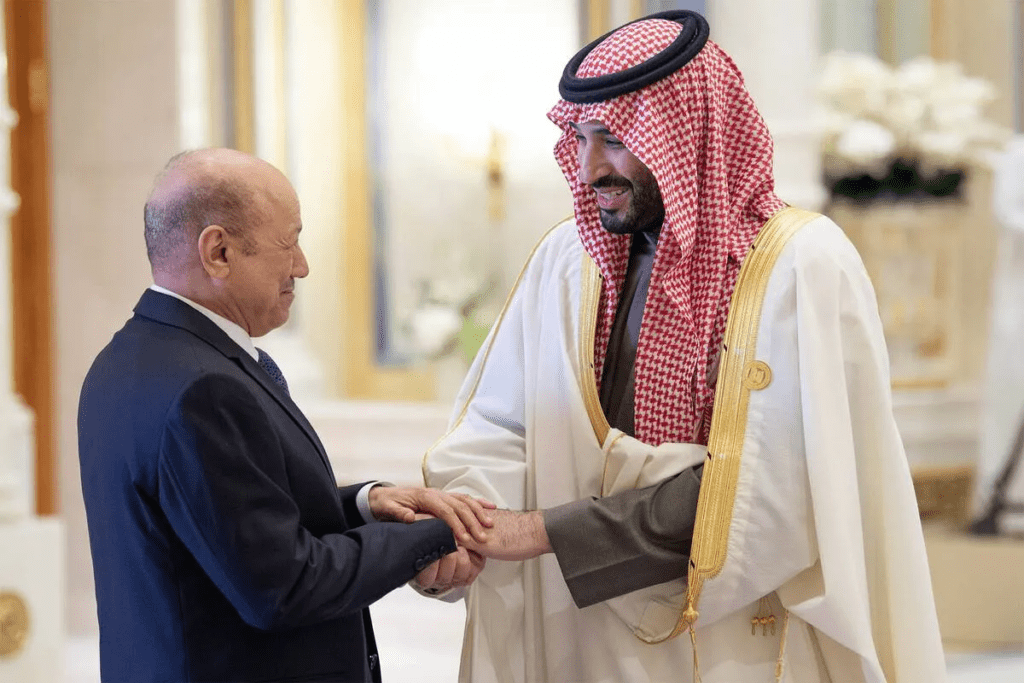Reports of direct talks between Saudi Arabia and Yemen’s Houthi rebels have sparked hopes of a diplomatic breakthrough toward ending the country’s devastating eight-year war. Many observers have drawn optimism from renewed peace efforts and months of relative calm on the ground, which has outlasted a formal truce that expired in October.
Yet there are worrying signs that rather than negotiating in good faith, both the Houthis and Riyadh are exploiting the process to buy time and international goodwill. In contrast with upbeat media reports and statements by diplomats, developments on the ground and the nature of the talks themselves suggest that a durable peace in Yemen remains a long way off.
Deceptive Signs of Hope?
In January, media close to the Houthis reported that Saudi Ambassador Mohammed Al-Jaber had visited the rebel-controlled capital Sanaa for direct negotiations with the Houthi leadership on reviving the lapsed ceasefire and finding a political solution to the war. That came days after a delegation from Oman, which has mediated in the crisis, visited the city amid reports that Saudi Arabia and the Houthis were edging towards a peace deal.
The United Nations’ Yemen envoy Hans Grundberg told the United Nations Security Council in mid-January that in discussions with stakeholders, he had seen “a potential step-change” in the trajectory of the war. Saudi Foreign Minister Faisal bin Farhan Al Saud has also noted progress in mediation efforts.
All these reports appear to hint at a breakthrough towards peace thanks to diplomatic efforts along with months of relative calm along Yemen’s front lines. But a closer look at the situation on the ground suggests that the war is far from over.
For a start, the internationally recognized government announced in late January it was forming a “National Shield Force” made up of specially trained personnel. The government also called on the international community to classify the Houthis as a terrorist organization, citing the group’s attacks on oil facilities in the east and south of the country late last year. There are also growing tensions within the nominally anti-Houthi camp, with the government and the separatist Southern Transitional Council at loggerheads since STC forces moved into Hadramout against the wishes of regional authorities.
The Houthis, for their part, carried out attacks in Marib, Taiz, and Al-Dali’ in January, while Yemeni government and American Navy seizures of weapons including drones heading for the Houthis suggest that the group is continuing to stock its arsenal. Moreover, Yemen’s dire economic situation has only worsened.
None of this suggests that the warring parties are negotiating in good faith. Rather, they appear to be buying time and preparing for a potential new round of conflict. So to what extent are the Saudi-Houthi talks, hailed in the media, likely to lead to a genuine peace process?
No War, No Peace
When the truce ended on October 2, Yemen entered a state of “no war, no peace”, backed by all sides. At the time of writing, relative peace has been held for four months, despite minor violations that were quickly resolved. This “non-truce,” a grey zone Yemen has not seen since the start of the war, has indicated to the international community that all parties want to reach a political settlement to end the conflict in Yemen. That has put pressure on the Yemeni government and the leadership of the Saudi-led coalition to enter into negotiations to end the war.
Talks between Saudi Arabia and the Houthis started on October 12th, when a Saudi delegation visited Sanaa, ostensibly to negotiate a prisoner exchange. The Omani-mediated talks soon gathered momentum, and after three months of intense diplomatic activity, reports emerged suggesting that a political deal may be on the horizon. Issues on the table reportedly included the opening of roads, an easing of the siege of Hodeidah port, the complete opening of Sanaa airport, and the establishment of a demilitarized zone on the Saudi-Yemeni border.
Yet leaked information about the talks shows that they are drowning in discussions about peripheral issues such as attacks on oil facilities, distribution of oil revenues, payment of state employees’ long-suspended salaries, and an end to the blockade on airports and ports. While these issues are important, they are all consequences of the war, rather than the core issues that caused it.
This suggests that each side is engaging in these talks as a political maneuver to serve its own interests. Saudi Arabia appears to be in direct negotiations with the Houthis in order to absorb the international pressure it is facing to end the war. The talks may also offer it an opportunity to win the Houthis over and break them away from its Iranian arch-rival. Moreover, ongoing talks allow for keeping the state of “non-truce” in place. Riyadh wants to avoid escalation, meaning that in exchange for suspending its airstrikes, it will no longer face drone or missile attacks inside its territory. This in turn allows it better to guarantee a reliable flow of oil exports.
For their part, the talks are an opportunity for the Houthis to gain international political legitimacy as the Yemeni party in negotiations with a key foreign player, with the added benefit of undermining the trust between the internationally recognized government and its main backer. On a practical level, the talks could give the Houthis wins on issues such as salary payments and obtaining a share of oil revenues without forcing them to make major concessions. They also buy the group time to regroup and consolidate its control over areas it controls, all the while shirking its responsibilities to provide services and open the roads to besieged cities. Finally, the negotiations benefit the group by allowing it to tell its supporters that it has won concessions from Riyadh.
It bears mentioning that this is not the first round of direct talks between the Houthis and Saudi Arabia. Negotiations in 2016 led to a prisoner exchange and delivery to the Houthis of a map of minefields before the talks collapsed. In 2019, the sides held secret talks aimed at de-escalation, but they resulted in little more than political maneuvering to buy time to regroup.
There is nothing to suggest that the latest talks will lead to different results. At best, they may see a renewal of a formal ceasefire. Both sides appear to be at the table for political reasons, using their participation and the accompanying media hype to absorb pressure from international actors who believe that peace in Yemen would ease the energy supply crunch caused by the Russia Ukraine war.
Prognosis Negative?
Any talks that fail to include all the major parties to the Yemeni war will not lead to lasting peace. Instead, they will incentivize the use of force to impose facts on the ground, further fragmenting the situation in Yemen.
Indeed, the situation is likely to get worse. Yemen’s conflict has exploded in complexity after years of war, producing regional and sectarian movements that pose major obstacles to diplomatic efforts at finding a resolution. These movements are backed by enormous economic and military resources that will undermine any negotiations that fail to reflect their interests.
However, even if they are momentarily involved in discussions, each party is more likely to turn to military actions again. Diplomacy, for the majority, is essentially another kind of war.
The opinions expressed in this article are those of the author and do not necessarily reflect the views of the Middle East Council on Global Affairs.


